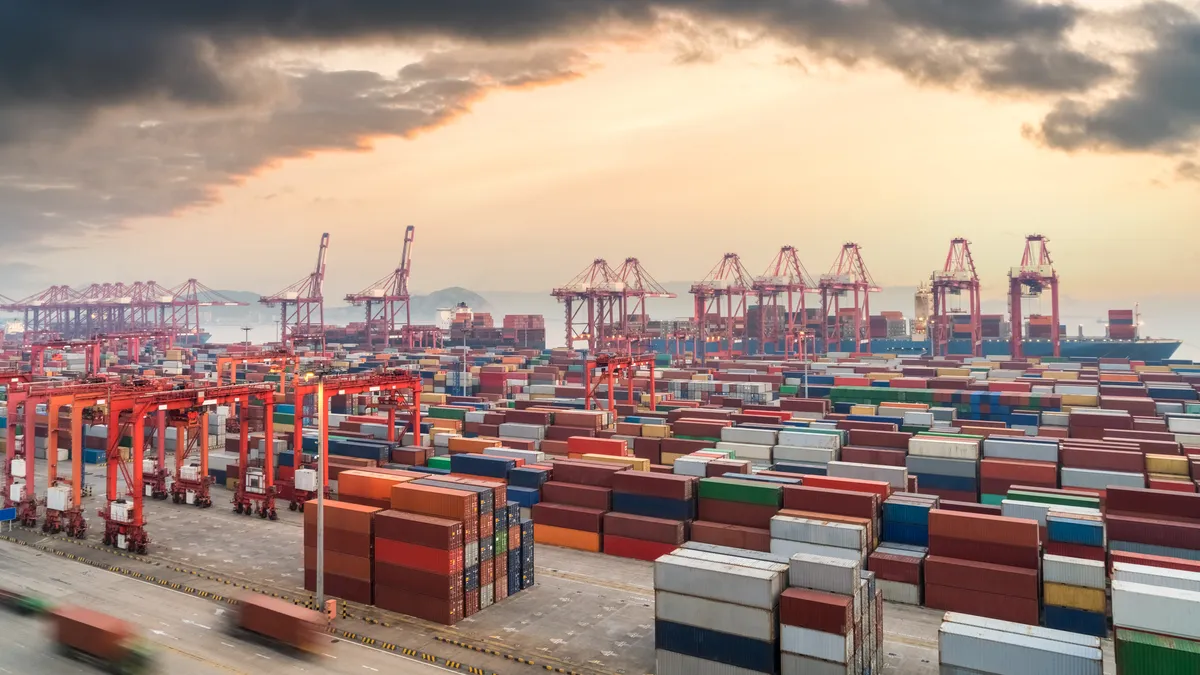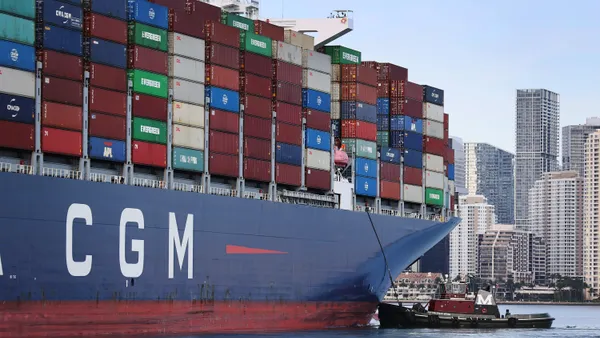Dive Brief:
- Hyundai said it is stopping production at South Korean plants because the coronavirus has disrupted its supply chain, a company spokesperson confirmed to Supply Chain Dive.
- Two Hyundai suppliers, Kyungshin and Yura Corporation, announced plans to increase production outside of China to make up for the shortage and plan to resume production Sunday at their Chinese locations, according to Automotive News.
- Hyundai is looking into "various measures" to curtail the interruption, "including seeking alternative suppliers in other regions," the company said. Multiple firms have announced plans to monitor the coronavirus' impact on supply chains, including Airbus, which has extended the holiday shutdown at its Tianjin Final Assembly Line facility, according to a Wednesday press release.
Dive Insight:
Measures put into place to fight the spread of the coronavirus are impacting shipments moving through the region as air, rail and ocean cargo are showing signs of strain.
Air cargo volume has been slashed due to the cancelation of more than 25,000 flights to, from, or within China, though the impact on air freight in other Asian countries has been minimal, according to C.H. Robinson. Cross-border rail freight has been stymied by multiple full or partial border closures, according to a recent update from Resilience360.
Hong Kong will close 10 border crossings, leaving open three, which would have an impact on the trucking market in the region, according to a customer advisory from C.H. Robinson.
"It's important to note that any cargo from the Wuhan, Hubei Province (the origin of the outbreak), and other quarantine zones, are restricted from leaving the province, which includes full container loads (FCL), less than container loads (LCL), as well as air freight," Sri Laxmana, vice president of global ocean product at C.H. Robinson, said in a blog post.
The Wuhan port is still the only ocean gateway affected by the outbreak, but cargo going to or from China could be held for longer and result in delays, Resilience360 said.
The coronavirus, combined with the implementation of IMO2020 and regular seasonality, turned the Baltic Exchange Capesize Index negative for the first time as a result of reduced ship demand. Factory shutdowns will result in a downturn in the dry bulk market as well, BIMCO, an international shipping association, said in a media release about the index dip.
American shippers want clarity from carriers on the impact on the movement of their goods, but it is often not available. The Agriculture Transportation Coalition sent a letter to carriers voicing frustration: "There are no good analytics, few if any policy announcements, or national data. At this point, much is just anecdotal," the coalition wrote.
The coalition notes that carriers have extended the period during which they won't charge storage fees to Sunday and calls on carriers not to implement fees beyond that point. "[W]hat ocean carriers and marine terminals plan to do after that, is not at all clear," reads a copy of the letter shared with Supply Chain Dive. "If the ocean carriers have contingency plans, they haven't shared them."
Chinese factories, which create the products that generate demand for transportation networks, are closed. Facilities in Wuhan will be closed until Feb. 17 while other municipalities, including Shanghai Municipality, have extended the Chinese New Year through Sunday.
"We are continuing to fly into and out of China, supporting demand where it exists from our customers," a UPS spokesperson told Supply Chain Dive in an email. "We are prepared to resume normal operations as soon as regular commercial demand returns."
Companies were already prepared for a shortage as a result of the Chinese New Year holiday schedule, but the extension of factory closures could be a "catalyst for some supply chain breakdown," Koray Köse, a senior director analyst at Gartner, told Supply Chain Dive in an interview.
Factory delays will be especially painful for just-in-time manufacturing operations, like the automotive industry, that work with low inventory levels and rely on a steady stream of product from suppliers.
"Hopefully [you] have qualified alternative sources and locations for your supply chain and activate those," Köse said. "Get those capacities online as soon as possible and become very aware of which suppliers are in your network directly, but also indirectly in the second and third tier."
Companies wouldn't need to look into alternatives if they already had continuous monitoring in place along with visibility into their supply chain, he said.
"Hyundai is thinking about closing a manufacturing location, and that's in Korea," he said. "So that shows that they did not have the right management plan in place"














